Support Me’s C.A.R.E. Model
The C.A.R.E. Model offers a clear, reflective process for professionals and organisations ready to embed cultural safety and equity in practice.
It’s not another checklist - it’s a mindset shift that begins within.
A Framework For Culturally Aligned Practice
In maternity, neonatal and perinatal care, the need for culturally aligned, equitable practice has never been clearer.
The stories of families from racially minoritised and migrant communities reveal a consistent theme: feeling unseen, unheard, or unsafe within systems that were never designed with them in mind.
Our C.A.R.E model addresses this gap.
It offers professionals a structured, reflective process for understanding how culture, identity, power and equity shape every interaction they have with families in their care.
C.A.R.E is a framework that provides professionals and organisation a guide through the internal and external shifts required to build trust, safety and equitable care.

Why the C.A.R.E. Model?
Despite growing awareness, inequalities persist.
Reports and enquiries such as those from MBRRACE, Muslim Women’s Networks’s Invisible (2023), Birthrights (2022), continue to show that Black, Asian and migrant families experience disproportionate harm in maternity care. We read this reports and enquiries everyday but we don’t always see that behind each number are parents, babies, a family.
The C.A.R.E model was developed as a response, a framework to move beyond awareness into applied, meaningful change.
It helps professionals and organisations reflect on their own positioning, recognise bias and privilege, and translate that insight into fairer, more culturally aligned practice; through a gentle, non-judgemental, empowering process.
The C.A.R.E. Model Explained
The model unfolds across four progressive stages, each holding two interlinked parts:
The Internal Pathway – this addresses what happens within the practitioner: self-reflection, awareness, and growth.
The External Pathway – this focuses on how that awareness manifests in practice: behaviour, communication, and systems of care.
Together, they form a dual-process for professional development from acceptance and helplessness to advocacy and confidence.
This model is designed to move away from ‘blame’ towards empowerment, teaching professionals the positive power of their privilege and how to utilise it in a way that makes sense for them.
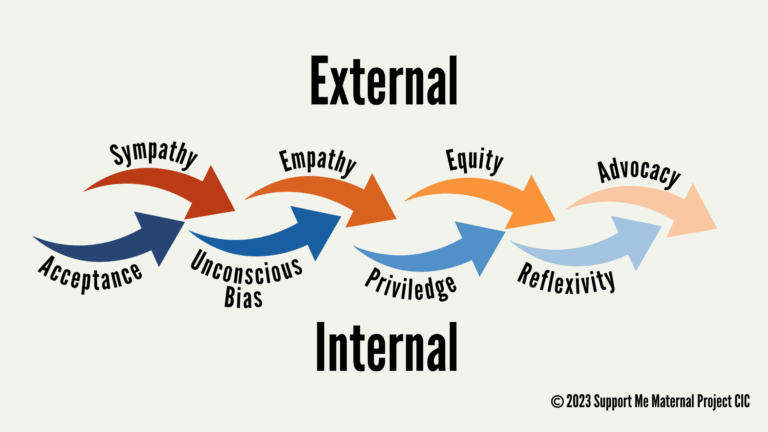
Stage 1: Acceptance & Sympathy
The starting point of culturally aligned practice is acceptance, acknowledging that structural racism and inequity exists within systems of care.
Internally, acceptance requires honesty: recognising that bias and inequity are not abstract issues “out there”, but the reality that shapes our own systems, leadership and practice that lead to drastically poorer outcomes for families, just because of the colour of their skin or the language then cannot speak.
Externally, this stage often shows up as sympathy, the instinct to feel sorry for or express concern for others’ experiences. Sympathy is a valid beginning, but it maintains distance: “I feel for you” rather than “I feel with you.”
Professionals at this stage are learning to see inequity but have not yet developed the tools for deep relational or systemic change.
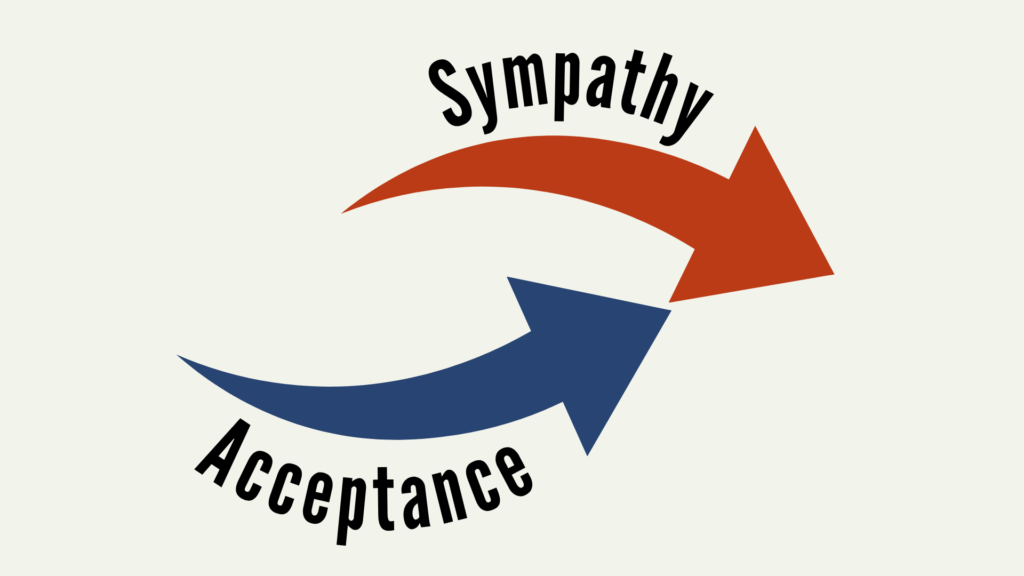
Stage 2: Unconscious Bias & Empathy
As reflection deepens, professionals begin to explore unconscious bias, the automatic attitudes, beliefs, or assumptions that shape perception and behaviour.
This term is frequently received from a place of judgement and blame, but the internal work involves curiosity rather than defensiveness.
Externally, this shift transforms sympathy into empathy, guiding practitioners on how to move from pity and disconnect to presence and real understanding.
Empathy requires attunement, seeing the person in front of you through their lens, not your own.
However, we need to understand our own lens before we can do this, so this stage helps practitioners to feel safer, more individualised, and emotionally responsive in their care.
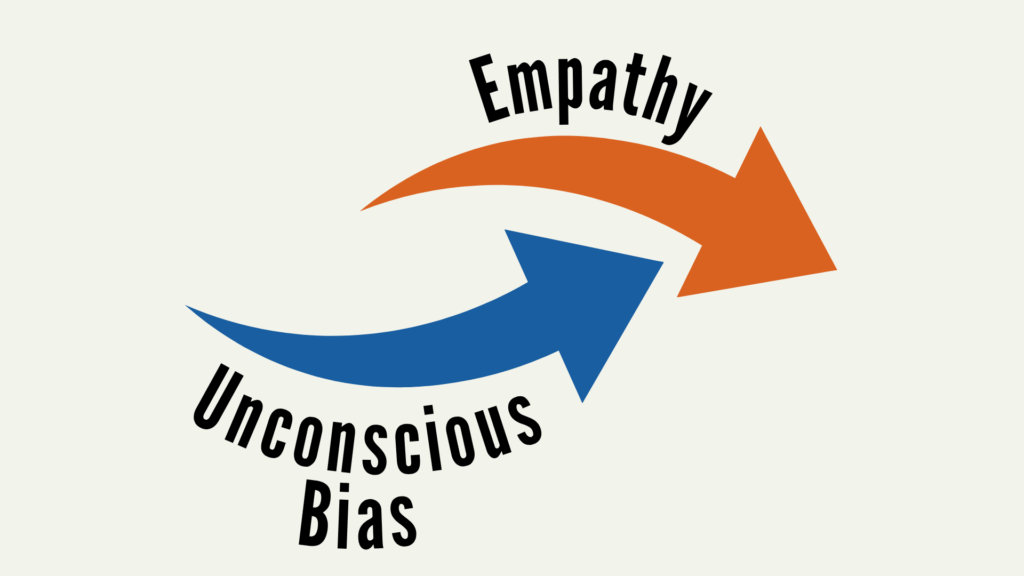
Stage 3: Privilege & Equity
Once bias becomes visible, the next step is to recognise privilege, the unearned advantages we hold within social or professional hierarchies.
Again, a term readily used in a negative way to impart blame, but in fact comes with an incredible amount of power to contribute towards change within ourselves as well as systems.
Internally, this means naming where power operates in our favour: whether through race, language, education, or role and recognising privilege is not about guilt, but the awareness of it and how it impacts others, negatively and positively.
Externally, this awareness manifests as a commitment to equity, not treating everyone the same, but giving each family what they need to access the right support towards the best outcome.
This is where professionals and organisations begin to actively reshape their practice and policies to improve outcomes.
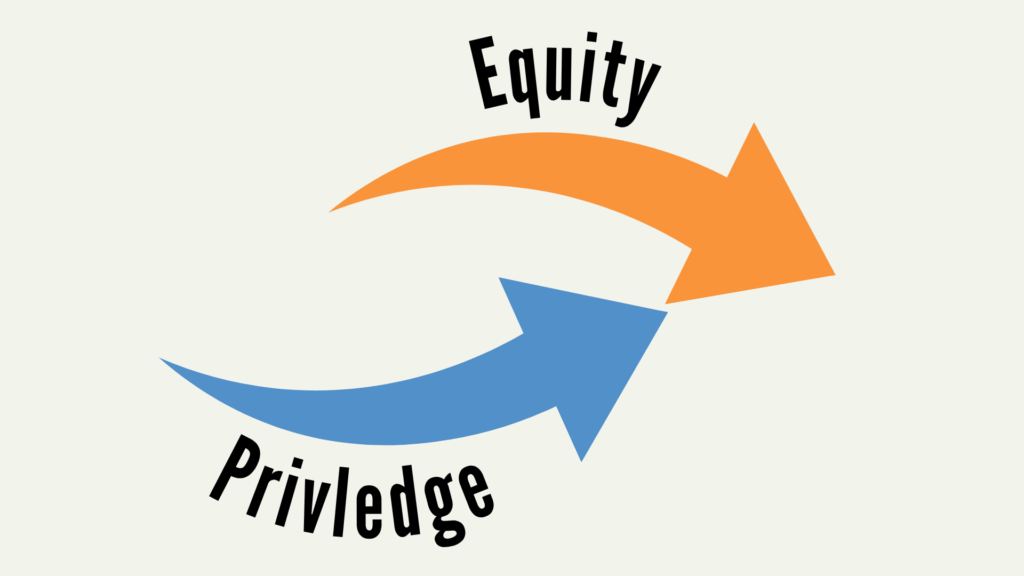
Stage 4: Reflexive & Advocacy
The final stage represents a sustained form of culturally aligned practice, rather than an end, because there is always room for growth.
Internally, professionals engage in reflexivity, an ongoing awareness of how their own identities, experiences, and power dynamics influence the care they offer. Unlike reflection, which looks back, reflexivity happens in the moment, adjusting understanding and behaviour as the context unfolds.
Externally, reflexivity naturally leads to advocacy. At this level, practitioners use their insight and influence to challenge inequity within their capacity, whether that means speaking up for a family, changing organisational practice, or influencing system-level change.
Advocacy is the outward expression of inner alignment. It signals that culturally responsive care has become embedded, not performative or another tick-box.
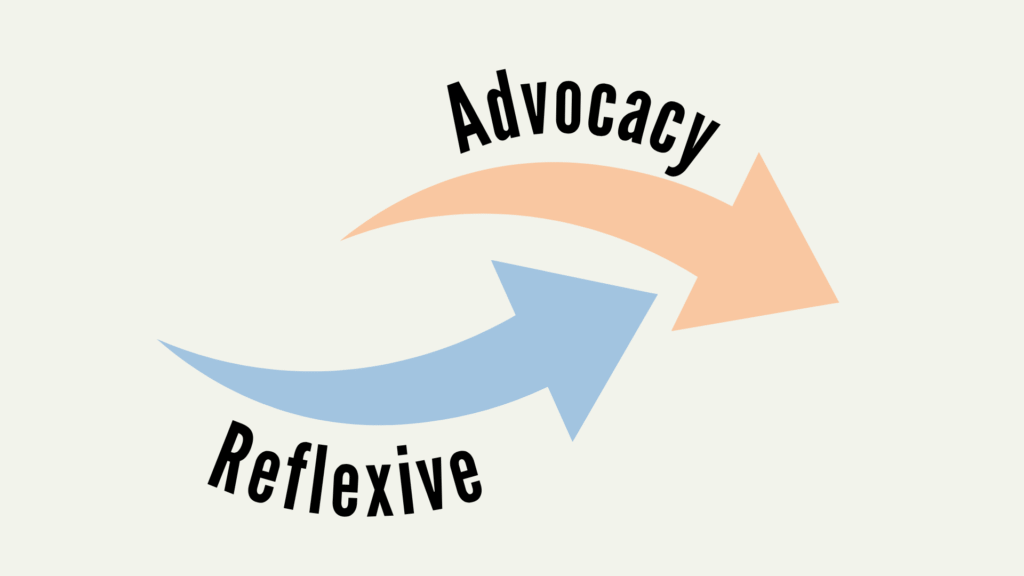
These four stages are not linear boxes to tick, but an ongoing cycle of self-awareness and applied compassion. The C.A.R.E model offers a pathway from passive awareness to active responsibility. It aims to remind us that equity isn’t achieved through good intentions alone, because we truly believe that no-one intends to commit harm, especially those in caring role. However, the impact it has on families is what this model addresses, which requires humility, courage, and conscious practice.
By engaging in both the internal and external work, professionals can begin to build systems of care that are not only clinically safe, but culturally and emotionally safe too.
Support Me’s Culturally Aligned Practice training explores this framework in depth, supporting professionals across maternity, neonatal and perinatal care to apply these principles through reflection, open dialogue and case-based learning.
We also offer training in-house for NHS, third sector and private organisations. Please email manisha@supportmecic.com for more information
